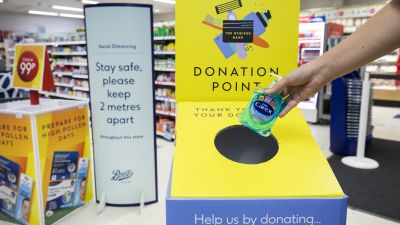Hygiene Poverty: What is it and who does it affect in the North East?

The word "poverty" tends to conjure up images of hunger and bad housing.
But the Covid-19 pandemic has shone a light on a lesser known consequence of having a low income - reduced access to hygiene products.
According to The Hygiene Bank, personal cleanliness is often the first casualty of poverty.
The charity's network of 450 volunteers have seen first-hand the impact of hygiene poverty. They say people tend to stop buying toiletries long before they start visiting food banks.
Hygiene poverty in numbers
Over the past 12 months, The Hygiene Bank says it has more than doubled the amount of personal hygiene products it distributes.
CEO Edgar Penollar says cleanliness should not be reserved for those who can afford it.
It is thought that over 500,000 people in the North East live in poverty - 150,000 of whom are children.
Key2Life is a food bank in South Shields. Its volunteers have also noticed a dramatic rise in those in need of hygiene products.
At the start of the pandemic, the government introduced a weekly £20-top-up on Universal Credit to help struggling families. This has now been scrapped.
Anti-poverty charities say its sudden removal could see the biggest single cut to social security in more than seventy years.
With 46% of families in the Tyne Tees region set to be affected by the reduction (according to the Joseph Rowntree Foundation), levels of hygiene poverty may continue to rise.
Removal of £20 Universal Credit uplift to affect hundreds of thousands of families across the region
North East religious leaders urge Government to make £20 Universal Credit uplift permanent
'Pingdemic' leads to rising demand and donation shortage at South Shields food bank